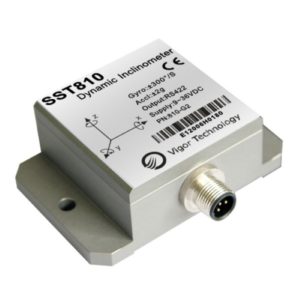Digital inclinometers have revolutionised the way tilt and slope measurements are taken in various industries and applications. These portable devices offer convenience, accuracy, and versatility, making them popular among professionals in fields such as construction, engineering, and surveying. But how accurate are digital inclinometers? In this blog post, we will discuss the reliability of digital inclinometer in various applications and explore their accuracy in delivering precise measurements.
-
Understanding Digital Inclinometers
Digital inclinometers are electronic devices that utilise sensors and algorithms to measure the angle or slope of an object or surface. They come in various forms, including standalone devices, smartphone apps, and integrated systems. Digital inclinometers offer advantages such as real-time data display, easy calibration, and the ability to capture and store measurements for further analysis.
-
Precision and Calibration
The accuracy of a digital inclinometer largely depends on its precision and calibration. High-quality digital inclinometer with advanced sensors and calibration mechanisms can provide highly accurate measurements, often within a few decimal places. It's essential to ensure regular calibration of digital inclinometers to maintain accuracy over time, especially in critical applications where precision is paramount.
-
Construction Industry Applications
In the construction industry, digital inclinometers find diverse applications. They are used in tasks such as slope monitoring, foundation leveling, and measuring angles during building inspections. Digital inclinometers offer convenience and accuracy, allowing construction professionals to determine the exact slope or angle required. This ensures that structures are built with precision and adhere to strict safety standards.

-
Engineering and Surveying Applications
Engineers and surveyors rely on digital inclinometers for a range of applications. These include measuring the tilt of machinery, monitoring railway track alignment, and conducting geotechnical surveys. The accuracy of digital inclinometers allows engineers and surveyors to make informed decisions based on reliable data. This helps optimise machinery performance, maintain infrastructure integrity, and ensure the success of engineering projects.
-
Automotive and Aerospace Applications
Digital inclinometers are also used in the automotive and aerospace industries. In automotive applications, inclinometers help measure vehicle tilt, assess suspension system performance, and aid in off-road vehicle navigation. In aerospace, digital inclinometers assist in aircraft attitude determination and flight instrumentation. Accurate angle measurements are vital for the safety and operation of vehicles in these industries.
-
Monitoring and Maintenance Applications
Digital inclinometers play a crucial role in monitoring and maintenance tasks. They are used to measure the inclination or tilt of structures, monitor ground stability, and assess the angle of rotating machinery components. Quick and accurate measurements provided by digital inclinometers enable proactive maintenance and help prevent potential issues before they escalate.
-
Limitations and Considerations
While digital inclinometers offer great accuracy in various applications, it's essential to be aware of their limitations. Factors such as temperature variations, magnetic fields, and external vibrations can affect their accuracy. Additionally, user error during operation and improper calibration can impact measurement reliability. It's crucial to understand these considerations and take appropriate precautions to ensure accurate and reliable measurements.
Conclusion: Reliability and Versatility
Digital inclinometers have proven themselves to be highly accurate and reliable instruments in various industries and applications. From construction and engineering to automotive and aerospace, digital inclinometers provide precise angle and slope measurements that are essential for decision-making, safety, and optimising performance. Understanding their capabilities, limitations, and proper calibration procedures ensures that digital inclinometers can deliver the accuracy needed for successful outcomes in a wide range of scenarios.

No comments yet